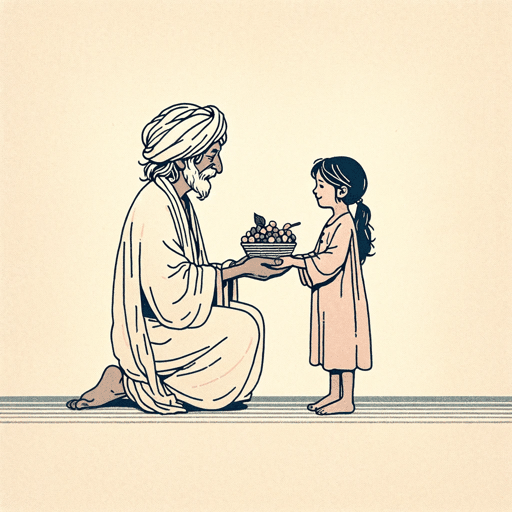31 pages • 1 hour read
Rabindranath TagoreKabuliwala
Fiction | Short Story | Adult | Published in 1892A modern alternative to SparkNotes and CliffsNotes, SuperSummary offers high-quality Study Guides with detailed chapter summaries and analysis of major themes, characters, and more.
Background
Authorial Context: Rabindranath Tagore
Rabindranath Tagore is a renowned Indian poet, philosopher, and author. He was born on May 7, 1861, in Calcutta, which was then the capital of British India. Tagore hailed from a family well-versed in literature, music, and the arts. Early exposure to culture influenced his creative development. His father, Debendranath Tagore, was a prominent philosopher, while his mother, Sarada Devi, was known for her literary talents.
Tagore received a traditional education in both Sanskrit and English, which reflects the fusion of Indian and Western influences in his upbringing. He demonstrated exceptional poetic talent from a young age and went on to compose a vast body of work that encompassed poetry, novels, short stories, essays, and songs. He is best known for his collection of poems titled Gitanjali (1910) which earned him the Nobel Prize in Literature in 1913, making him the first non-European to receive the prize.
The late 19th and early 20th centuries, during which Tagore lived and worked, was a period of significant historical and cultural change in India. This is evident in “The Cabuliwallah.” During this period, India was under British colonial rule. "The Cabuliwallah" paints the historical setting of Calcutta, a city that served as a center for British colonial administration.
Related Titles
By Rabindranath Tagore



